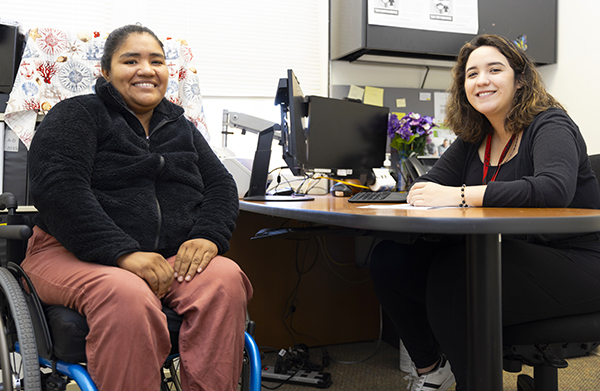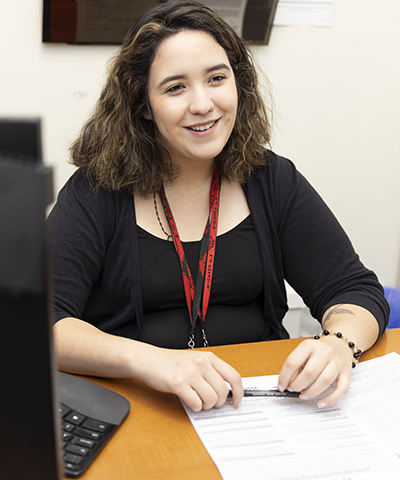Care Neighborhood

“…when I talk to these patients, I am always surprised by their resilience and perseverance.”
—Karolina

At the age of 31, a traumatic car accident resulted in paralysis of both of Dalia’s legs.
She expects to spend the rest of her life in a wheelchair and to require assistance for the normal tasks of daily living. Dalia can no longer work or live independently and requires skilled care. In addition to a variety of physical complications, those affected by paralysis often struggle with depression and need psychological or psychiatric support.
Dalia used to love going to the park with her daughter. She loved cooking and cleaning and taking her to school. She knows that her daughter wants to be active, but simple things like going down the stairs are no longer possible for Dalia. Additionally, many places in the community are still not wheelchair-accessible. With limited resources and English still being a challenge for the household, Dalia has felt the impact of the accident both emotionally and physically.
Karolina is a Health Educator for the Care Neighborhood program at La Clínica. The program works with patients who are in the highest risk category and who are under-represented in the system of care. These patients are often unable to navigate the complexities of the healthcare system on their own. Community Health Workers, Social Workers, and Health Educators work with patients’ doctors and mental health specialists over the course of 6 months to a year—or longer, depending on their needs—helping them remove barriers and obstacles to receive care.
In addition to chronic illness and/or mental health issues, these patients are also exposed to Social Determinants of Health (SDOH). These are the non-medical factors such as poverty, education, housing, domestic violence, and systemic discrimination that influence health outcomes and daily life. Health educators connect patients to local resources that help address these barriers, including shelters, rehab facilities, and food banks.
“I haven’t had to live on the streets or worry about when I’m going to eat next or about being assaulted,” says Karolina, “but when I talk to these patients, I am always surprised by their resilience and perseverance.”
Dalia is a Care Neighborhood success story. Through the program, she has been able to access Supplemental Security Income (SSI), social security, and occupational therapy. “I live on the second floor of a duplex, and I have to go down 12 steps to get out,” says Dalia. “I always need two people to carry me down and out of the house.” Care Neighborhood is now working in partnership with East Bay Innovations to get a wheelchair ramp for the stairs of her apartment so she can be more mobile and spend time with her daughter like she used to do.
Dalia receives all the services she needs through La Clínica, including lab work and medications. The services she receives from the Spanish-speaking staff, including home-based services to support her while homebound, have changed the quality of her life.
“It’s not that easy for just anyone to come to your house and really help you. They’ve truly helped me.”
